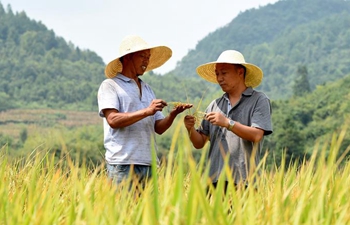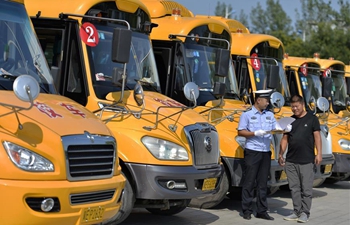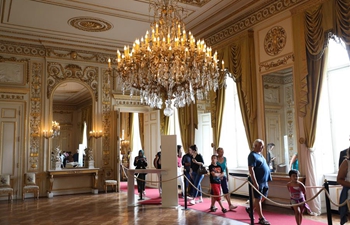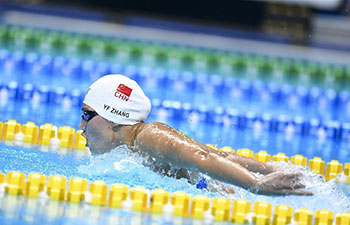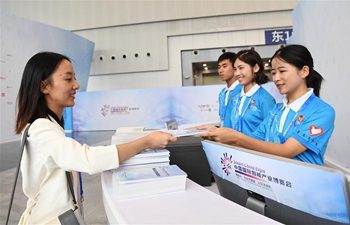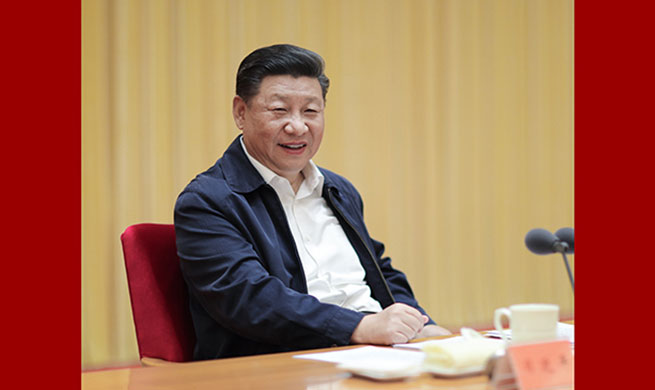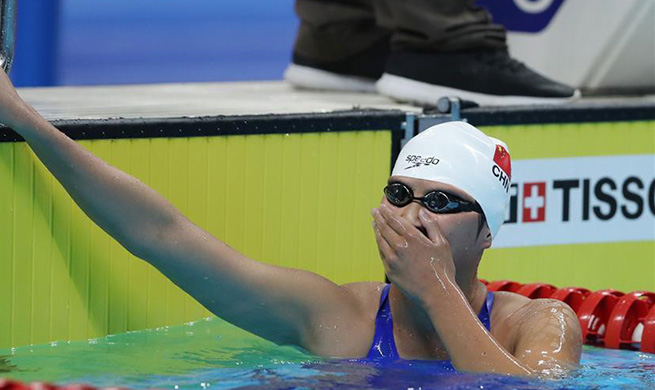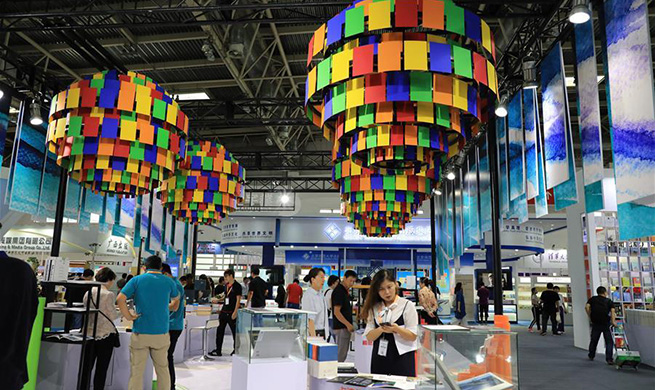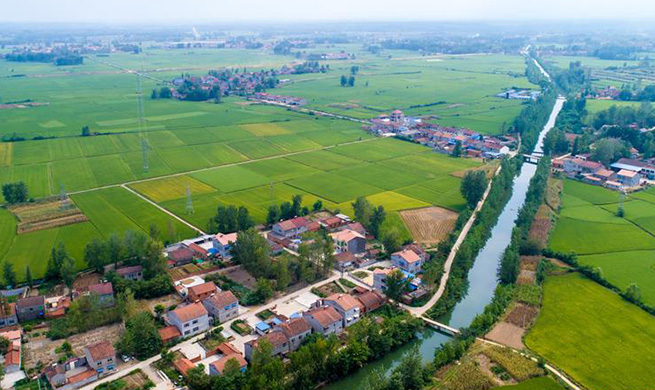BAGHDAD, Aug. 23 (Xinhua) -- Like millions of Muslims around the world, Iraqis are celebrating the religious festival of Eid al-Adha, while many expressed their hope that the troubled political process could bring more stability and could ease their suffering.
The four-day annual festival falls on the 10th day of the month of Dhul Hijja of the lunar Islamic calendar. The Eid al-Adha, also known as the Feast of the Sacrifice, marks the end of the spiritual peak of the annual pilgrimage, or Hajj in Arabic, when pilgrims descend from the hill of Arafat to the nearby holy city of Mecca in Saudi Arabia.
Iraqis in Baghdad are living a different festival this year after the dramatic improvement in security situation in the country after the territorial defeat of the extremist Islamic State (IS) militants late last year.
People here were pleased after the security authorities opened dozens of streets that were blocked by huge blast walls that spread in Baghdad during the years of chaos and sectarian strife that followed the U.S.-led invasion in 2003.
The reopen of the streets reduced the suffering of traffic jam and enabled hundreds of families to go to parks and city gardens.
"A plan was prepared to ensure safety and to protect the people during the Eid days without blocking roads," Jalil al-Rubaie, commander of Baghdad Operations Command, told a press conference.
"We have provided further protection to malls, places of worship, markets and any place frequently visited by the citizens," Rubaie said.
The outgoing government announced a five-day holiday and paid the salaries of most government employees before the holiday.
Many people went to spend the holiday in the cities of Kurdistan region and the mountains in northern Iraq.
The markets in Baghdad were crowded before the holiday despite the summer heat, as people went to buy new clothes and presents for their family members and friends.
Like Muslims around the world, people mark the festival of Hajj pilgrimage by sacrificing a sheep or a cow in symbolic recall of Prophet Ibrahim's willingness to sacrifice his son on orders of the God.
The people here, the sacrifice ritual is not only for pilgrims in Mecca but also religiously required for Muslims who can afford it to sacrifice livestock.
Meat from the animals slaughtered for Eid is traditionally shared with the poor. According to the Islamic law, the meat should be divided into three parts: one-third for the poor people, one-third for neighbors and relatives, and the rest for the households.
Many Iraqi Muslims buy sacrificial animals to bless and honor their families, or for the memories of their deceased beloved ones.
Traditionally, Iraqi families gather on the first day of the Adha feast at the house of the elder family members, and usually the elders give the children a small amount of money, named Eidiyah, to make them happy buying sweats and small toys.
Abdul-Amir Ali, 43, told Xinhua the security forces have made tangible successes and defeated IS group while exerting efforts to provide security and stability to the people, but the problem is with the politicians, who are still fighting for the sake of their own interests.
"The politicians are seeking to enhance their influence and power, while using the people's sufferings and lack of basic services to gain more benefit for their own.
Ali's wife, a teacher, joint in the conversation, saying "we are spending beautiful time in the holiday, with the efforts of the security forces, we are not afraid like in the past. I hope we can live in peace like most peoples in the world."
For his part, Omran Abdul-Rahman, 24, who is still in search of a job since he graduated from a Baghdad college several years ago, told Xinhua that he agrees that security situation is better, but they still need basic services and jobs.
"I have the right to dream of a better life, like to have a stable living, to get married with the women I love and to have our own family," Rahman said.
Rahman pins hope on the new government to end the suffering of the people.
"I wish the next government to be formed as soon as possible," Rahman said, adding that the country needs rebuilding to "compensate the devastation of the infrastructure by the chaos and violence in the past years."
On May 12, millions of Iraqis went to 8,959 polling centers across the country to vote for their parliamentary representatives in the first general election after Iraq's historic victory over IS militant group last December.
However, Iraq witnessed serious setbacks in its political process following the elections as many Iraqi parties, especially in the Kurdish region and the disputed areas, including Kirkuk province, have complained about alleged irregularities and forgery in the parliamentary elections.
On Aug. 19, the Iraqi Federal Supreme Court ratified the final results of the parliamentary elections, marking the first step toward forming the Iraqi government that will rule the country in the coming four years.
The final results showed the Sairoon Coalition backed by Shiite cleric Moqtada al-Sadr was the front-runner and won 54 seats in the upcoming 329-seat parliament.
The results also showed al-Fath coalition, led by Hadi al-Ameri in the second place with 48 seats, while the al-Nasr Coalition, led by current Prime Minister Haider al-Abadi, came in third with 42 seats, and the State of Law Coalition headed by Vice President and former Prime Minister Nuri al-Maliki garnered 25 seats.
The two major Kurdish parties -- Kurdistan Democratic Party (KDP), headed by Masoud Barzani, and Patriotic Union of Kurdistan (PUK) -- took the lead in the Kurdish region with 25 seats for the KDP and 18 for the PUK.
The ratification of the results, which came after almost three months of the elections, widely opened the door for Iraqi politicians to form the next government and gave a push for the tough negotiations by the political blocs to form the largest alliance before the first session of the new parliament.
According to the Iraqi constitution, the ratification of the results entails the outgoing President Fuad Masoum to call on the new parliament to hold its first session under the chairmanship of the elder parliament member within 15 days of the ratification.
Moreover, the ratification also leads to electing a president of parliament and then the president of the republic, who will ask the largest alliance to nominate its candidate to form a government within 30 days.




